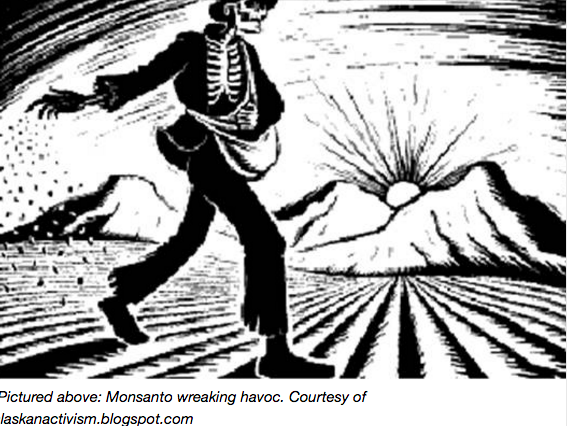
When we saw the movie Food Inc. at a small, nearby theater a couple years ago it really had a profound impact on us. This was around the same time we started “going organic” in our produce choices and Food Inc. helped to push us over the edge when it came to meats, dairy products, etc. What struck me as totally missing from Food Inc. was any discussion on how these massive food conglomerates continue to finance their operations and what you can do to make sure you aren’t a part of it. All of this talk about boycotting the industrialized food system with no focus on what keeps the wheels turning: MONEY
What most people don’t realize is that all of these big ag companies are “public”, which means you can buy and sell shares of their stock on a stock market exchange. If you have a diversified 401K or stock portfolio you may be inadvertently contributing to the success of the very firms you’ve chosen not to support.
What most people don’t realize is that all of these big ag companies are “public”, which means you can buy and sell shares of their stock on a stock market exchange. If you have a diversified 401K or stock portfolio you may be inadvertently contributing to the success of the very firms you’ve chosen not to support.
Here’s what happens: Joe Smith gets a paycheck and chooses to contribute a portion of it to a group of mutual funds that his employer or financial advisor recommends (or that he thinks sound good). These mutual funds go out and invest in hundreds or thousands of different stocks and bonds. Joe is happy with his new investments and he doesn’t think twice about it. Little does he know, there is a decent chance that one of the mutual funds he sent money to is actually buying stock in a company that he would never support in real life!
Why is it important to avoid buying stock in these companies? Because buying stock is buying ownership in a company. That in and of itself is bad enough. You could be an owner of Monsanto and not even know it! In addition, the more people that own a company’s stock the higher the price goes. Higher stock price translates into a greater ability for Monsanto to force GM seeds on farmers, sue and intimidate farmers, bribe others, hire away employees from decent corporations, pay for more “research” and “trials”, and generally wreak havoc on the world’s food system.
Why is it important to avoid buying stock in these companies? Because buying stock is buying ownership in a company. That in and of itself is bad enough. You could be an owner of Monsanto and not even know it! In addition, the more people that own a company’s stock the higher the price goes. Higher stock price translates into a greater ability for Monsanto to force GM seeds on farmers, sue and intimidate farmers, bribe others, hire away employees from decent corporations, pay for more “research” and “trials”, and generally wreak havoc on the world’s food system.
Pictured above: Monsanto wreaking havoc. Courtesy of alaskanactivism.blogspot.com
So what to do in real life? Research your investments! All of this information is publicly available. If you invest in mutual funds, request to see a prospectus or go online and research their investments. Some good sites include:
Morningstar to Research Mutual Funds and Stocks - It's Free
Mutual Fund Search - Enter the name of your mutual fund provider in this site. Vanguard's 500 List that don't meet Calvert's Environment standards
Some of the bigger, publicly traded companies that you may want to keep an eye out for:
Monsanto, Archer-Daniels Midland, BASF, Dow Chemical Company, Syngenta, Bayer, and others. We encourage you to research all of your shareholdings, it's an easy step to ensure that you know what you own!
Here’s a list of fund providers that currently invest in big ag companies that you may want to look into:
Vanguard, JP Morgan, T Rowe Price, Wellington Management, Janus, Lord, Abbett & Co, State Street, BlackRock, PIMCO and MANY others.
If you have any of your money with any of these funds, or any mutual funds at all, you may want to analyze the investments within the portfolios that you own!
Invest wisely my friends!




